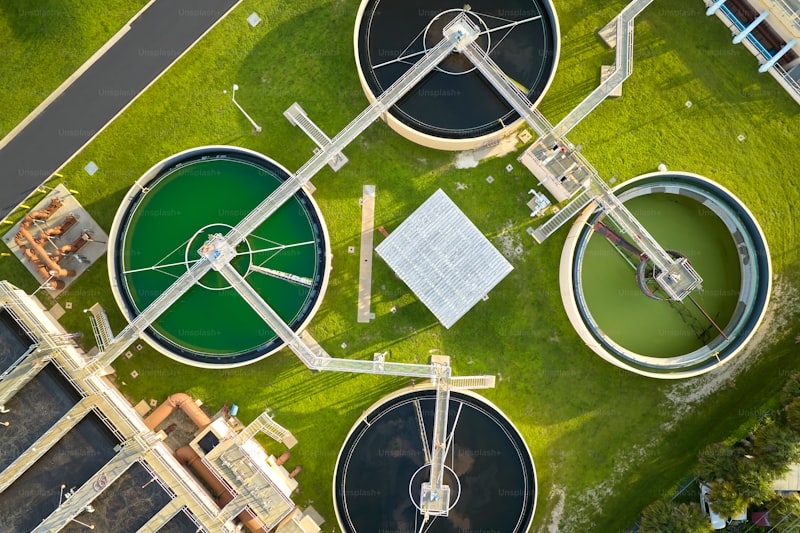
In the bustling world of managing wastewater systems, efficiency isn’t just a goal—it’s a necessity. That’s where Computerized Maintenance Management Systems (CMMS) step in, offering a streamlined solution to enhance operational effectiveness. So, what exactly makes CMMS indispensable in the wastewater industry?
Firstly, picture a scenario where every component of your wastewater facility—from pumps to treatment units—functions seamlessly without downtime. CMMS achieves this by scheduling preventive maintenance tasks automatically, ensuring equipment is serviced before issues arise. This proactive approach not only minimizes unexpected breakdowns but also extends the lifespan of critical assets, reducing long-term replacement costs.
Moreover, in a realm where compliance with regulatory standards is paramount, CMMS acts as a vigilant guardian. By storing maintenance records and generating comprehensive reports, it simplifies audits and demonstrates adherence to environmental regulations. This capability not only fosters a culture of accountability but also mitigates risks associated with non-compliance penalties.
Furthermore, imagine the power of data-driven decision-making in optimizing wastewater operations. CMMS collects real-time performance metrics and trends, empowering managers to identify inefficiencies and allocate resources judiciously. This analytical prowess transforms reactive maintenance into proactive strategies, driving overall operational efficiency.
Beyond operational benefits, CMMS fosters a collaborative environment by centralizing communication among maintenance teams and stakeholders. Through mobile accessibility, technicians can receive work orders instantly and update progress in real-time, fostering swift resolutions and minimizing downtime disruptions.
Streamlining Efficiency: How CMMS Transforms Wastewater Management
Managing wastewater systems efficiently is crucial for environmental sustainability and public health. With the advancement of technology, Computerized Maintenance Management Systems (CMMS) have revolutionized how wastewater facilities operate and maintain their infrastructure. CMMS integrates various functions like asset management, preventive maintenance, and work order management into a single platform, enhancing operational efficiency and reducing downtime.
One of the key benefits of CMMS in wastewater management is its ability to centralize data. By consolidating information on equipment, maintenance schedules, and historical performance, CMMS provides operators with real-time insights into the status of critical assets. This proactive approach enables teams to identify potential issues before they escalate, minimizing the risk of equipment failures and operational disruptions.
Moreover, CMMS facilitates preventive maintenance practices. Regular inspections and timely repairs are essential in wastewater treatment to prevent costly breakdowns and ensure regulatory compliance. CMMS automates maintenance workflows, scheduling routine tasks and sending alerts for upcoming inspections. This systematic approach not only extends the lifespan of equipment but also optimizes resource allocation, reducing overall maintenance costs.
In addition to operational benefits, CMMS enhances regulatory compliance in wastewater management. Compliance with environmental standards and regulations is a top priority for wastewater facilities. CMMS helps organizations track and document maintenance activities, providing auditable records that demonstrate adherence to regulatory requirements. This transparency fosters trust with regulatory agencies and minimizes the risk of fines or penalties due to non-compliance.
Furthermore, CMMS improves workforce productivity and collaboration. By streamlining communication and task assignment, CMMS ensures that maintenance teams have access to up-to-date information and instructions. This reduces ambiguity and enhances accountability, enabling teams to work more efficiently towards common goals.
CMMS plays a pivotal role in transforming wastewater management by optimizing operations, enhancing regulatory compliance, and improving overall efficiency. As technology continues to evolve, adopting CMMS solutions will be essential for wastewater facilities seeking to maintain sustainable and resilient infrastructure.
Cost-Saving Innovations: CMMS Benefits in Wastewater Treatment
Cost-saving innovations are crucial in the field of wastewater treatment, where efficiency directly impacts operational budgets. One such innovation making waves is Computerized Maintenance Management Systems (CMMS). These systems offer a multitude of benefits that not only streamline operations but also significantly reduce costs over time.

CMMS enables wastewater treatment facilities to optimize maintenance schedules with precision. By automating preventive maintenance tasks, such as pump inspections and filter replacements, facilities can avoid costly breakdowns and extend the lifespan of equipment. This proactive approach not only minimizes downtime but also enhances overall operational reliability.
Moreover, CMMS facilitates efficient inventory management. It tracks spare parts usage and replenishment needs, ensuring that critical components are always available when needed. This capability prevents emergency orders and rush deliveries, which can be expensive and disruptive to daily operations.
In addition to operational efficiencies, CMMS contributes to regulatory compliance. Wastewater treatment facilities must adhere to stringent environmental standards. CMMS helps by maintaining detailed records of maintenance activities and equipment performance. This documentation is essential during regulatory audits, demonstrating proactive maintenance practices and compliance with environmental regulations.
Furthermore, CMMS enhances workforce productivity by assigning tasks systematically and providing technicians with real-time updates. This ensures that maintenance teams are always informed and equipped to handle tasks efficiently. By reducing administrative overhead and improving task allocation, CMMS allows staff to focus more on critical maintenance activities, thereby maximizing operational efficiency.
Preventive Power: CMMS Solutions for Wastewater Infrastructure
Imagine a city’s vital wastewater systems functioning seamlessly, ensuring clean water flow and environmental safety without disruptions. Achieving this operational harmony relies heavily on proactive maintenance, where preventive measures play a pivotal role. Enter CMMS solutions—Computerized Maintenance Management Systems—that act as the guardians of wastewater infrastructure.
CMMS solutions are akin to vigilant sentinels, meticulously monitoring every valve, pump, and pipeline within the wastewater network. They don’t just wait for breakdowns to occur; instead, they anticipate issues through scheduled inspections, predictive analytics, and real-time data monitoring. This proactive approach not only prevents costly repairs but also enhances the overall efficiency of wastewater treatment plants.
Picture CMMS as a skilled detective, constantly gathering clues about the health of equipment and infrastructure. By analyzing trends and patterns, these systems predict potential failures long before they manifest, allowing maintenance teams to intervene promptly. This predictive capability not only saves time and money but also prevents environmental hazards by mitigating the risk of system failures.
Moreover, CMMS solutions streamline workflow management by prioritizing tasks based on urgency and impact. They ensure that maintenance crews are always ahead of the curve, addressing critical issues before they escalate into emergencies. This systematic approach not only extends the lifespan of equipment but also minimizes downtime, keeping the wastewater infrastructure operational and reliable.
In essence, CMMS solutions are the unsung heroes behind the scenes of wastewater management. They empower municipalities and utility providers to uphold stringent regulatory standards while optimizing operational efficiency. By harnessing the preventive power of CMMS, cities can safeguard their wastewater infrastructure against disruptions, ensuring continuous service delivery to communities and safeguarding environmental health.
Data-Driven Decisions: Harnessing CMMS for Better Wastewater Operations
In today’s world, managing wastewater operations efficiently is crucial for environmental sustainability and public health. One of the key tools that modern wastewater treatment facilities rely on is Computerized Maintenance Management Systems (CMMS). These systems are revolutionizing how wastewater operations are managed by leveraging data to make informed decisions.
CMMS allows wastewater treatment plants to collect, organize, and analyze vast amounts of data in real-time. By integrating data from various sensors, equipment readings, and historical maintenance records, CMMS provides invaluable insights into the health and performance of critical infrastructure. Imagine it as a digital brain that continuously monitors the heartbeat of the facility, detecting anomalies and predicting potential issues before they escalate.
The real magic of CMMS lies in its ability to transform raw data into actionable intelligence. Operators can now proactively schedule maintenance based on actual equipment performance rather than fixed schedules, optimizing uptime and reducing costly downtime. This predictive maintenance approach not only extends the lifespan of equipment but also minimizes operational disruptions, ensuring smooth wastewater treatment processes.
Furthermore, CMMS enables better resource allocation by identifying inefficiencies and streamlining workflows. By analyzing historical data trends, operators can fine-tune operational processes, improve energy efficiency, and reduce overall operational costs. It’s like having a skilled conductor orchestrating a symphony, harmonizing every element to achieve optimal performance.
Frequently Asked Questions
What role does preventive maintenance play in CMMS for wastewater facilities?
Preventive maintenance in CMMS for wastewater facilities minimizes equipment breakdowns by scheduling regular inspections and repairs. This proactive approach ensures operational efficiency, extends equipment lifespan, and reduces overall maintenance costs.
What cost savings can be achieved by utilizing a CMMS in the wastewater industry?
Learn about the cost savings achievable with CMMS in the wastewater industry, including reduced equipment downtime, optimized maintenance schedules, and extended asset lifespan.
How does a CMMS enhance asset reliability and lifespan in wastewater plants?
Learn how CMMS improves asset reliability and extends lifespan in wastewater plants by optimizing maintenance schedules, ensuring timely repairs, and enhancing operational efficiency.
What are the key benefits of implementing a CMMS in wastewater management?
Learn about the key benefits of implementing a CMMS (Computerized Maintenance Management System) in wastewater management. Discover how CMMS streamlines maintenance operations, enhances asset reliability, reduces downtime, improves regulatory compliance, and boosts overall operational efficiency.
How can a CMMS improve operational efficiency in the wastewater sector?
Learn how a Computerized Maintenance Management System (CMMS) enhances operational efficiency in the wastewater sector by streamlining maintenance tasks, optimizing asset management, reducing downtime through preventive maintenance scheduling, and improving regulatory compliance.



